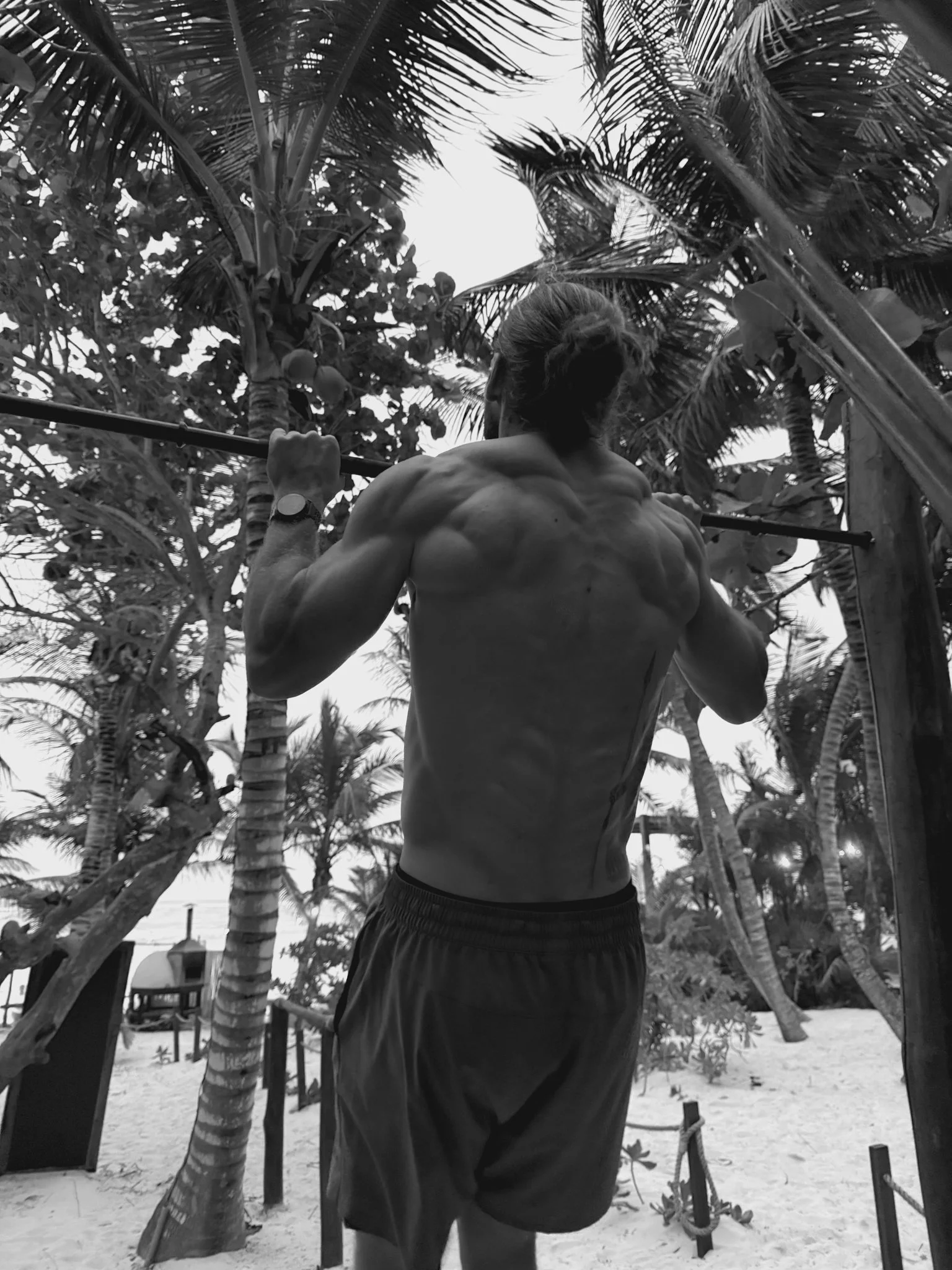Coaching philosophy
-

Balancing Structure and Variation
To create a sustainable and effective training program, two key elements must be balanced: engagement and structured progression.Strength is built through progressive overload, which involves repeating movements with increased intensity over time. However, performing the same exercises repeatedly can become monotonous, leading to burnout and a decline in motivation. To counter this, Clay takes a muscle-group-first approach to progression rather than focusing solely on specific movements. This allows for exercise variation while still maintaining targeted overload, ensuring that training remains engaging without sacrificing results.
Traditional cardio methods, such as long runs or stationary cycling, can feel repetitive, often causing individuals to avoid them altogether. However, the body thrives when strength, cardiovascular, and respiratory systems are trained dynamically and in coordination. Clay’s approach blends structured progression with constant variation—introducing new movements and challenges while ensuring key adaptations continue to develop.
Too much structure can lead to boredom and drop-off, while too much variation can result in inconsistency and a lack of progress. Clay’s blended approach keeps programming both strategic and engaging, so that when discipline wavers, the training itself remains compelling enough to keep clients coming back.
-

Emotional + Physical Intelligence
Through years of experience as a group CrossFit coach and personal trainer, Clay has developed the ability to coach at a world-class level—not just through a deep understanding of movement mechanics, but through a genuine connection with people.Too often, the fitness industry promotes the idea that training should be done simply because it’s "good for you." However, real results come when fitness is tied to what truly matters in a person’s life—whether that’s setting an example for their children, staying strong to play with their grandkids, or overcoming an injury that has held them back.
A great coach meets individuals where they are, both physically and mentally, and knows how to scale workouts in real time to challenge them appropriately. Achieving this requires an authentic and intentional understanding of each person’s unique needs.
Just as importantly, coaching requires emotional intelligence—knowing when to push and when to support, when to challenge and when to listen. Clay’s philosophy is simple: people don’t care how much a coach knows until they know how much that coach cares. That’s the difference between simply giving instructions and creating lasting change.
-

proactive vs. reactive approach
Fitness is often approached reactively—waiting until pain, injury, or physical decline forces action. Clay’s coaching philosophy is rooted in proactive training, blending elements of physical therapy with strength and conditioning to build resilience before problems arise.He has worked with individuals across the spectrum—from high-performing athletes to those rebuilding from the ground up, including neurologically impaired clients regaining motor function, autoimmune patients recovering post-transplant, and elderly individuals navigating surgical rehab or maintaining long-term health.
While each of these individuals has unique training requirements, the common thread is the integration of rehabilitation and strength training. Whether working with a healthy individual or someone recovering from an injury, the key to long-term success is a strategic combination of corrective exercise and progressive overload to optimize performance, prevent injury, and sustain progress.
Clay’s approach goes beyond fitness—it’s about creating a structured training system that seamlessly integrates rehabilitation and strength, empowering people to move better, recover stronger, and future-proof their bodies against setbacks.